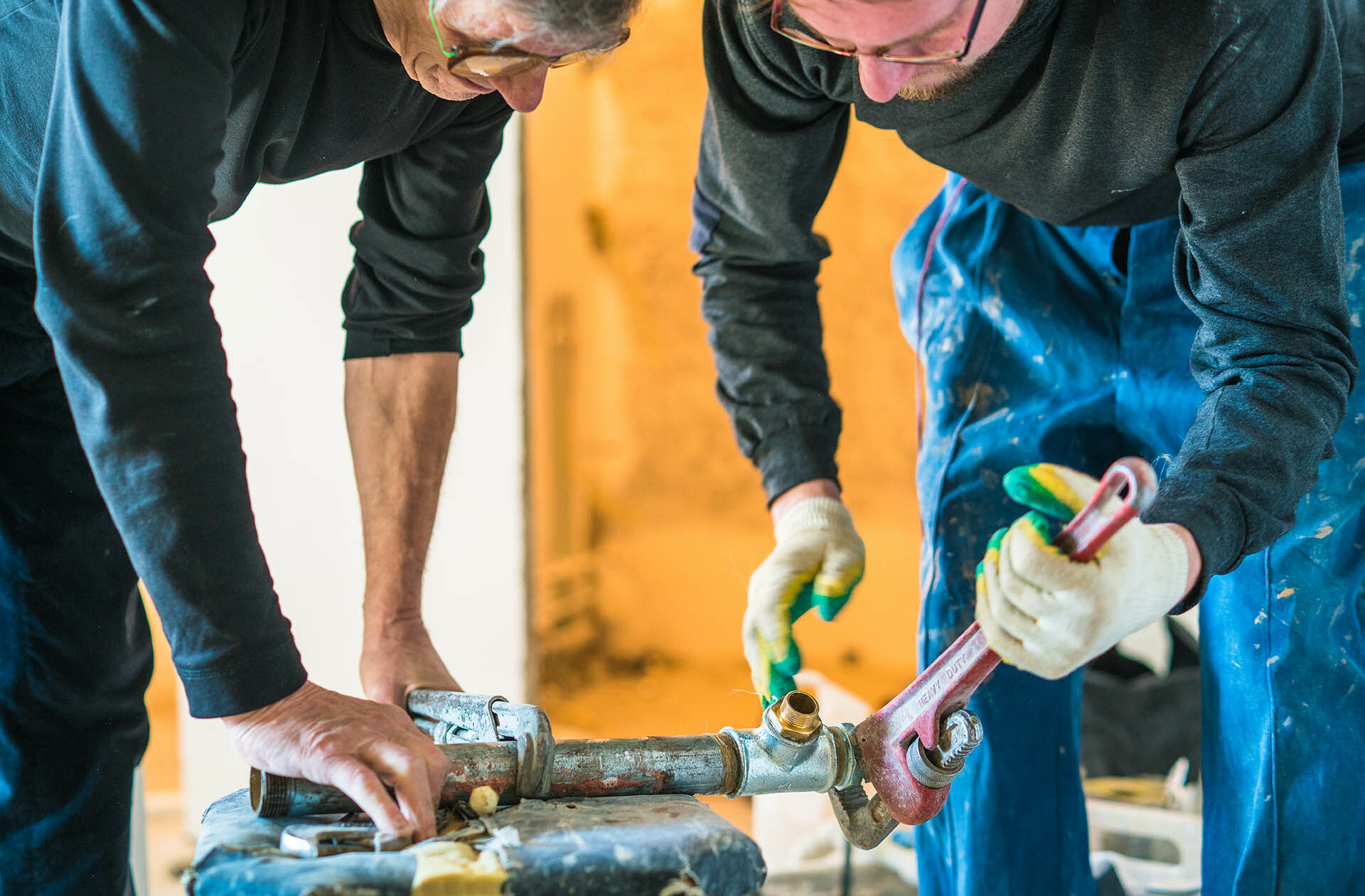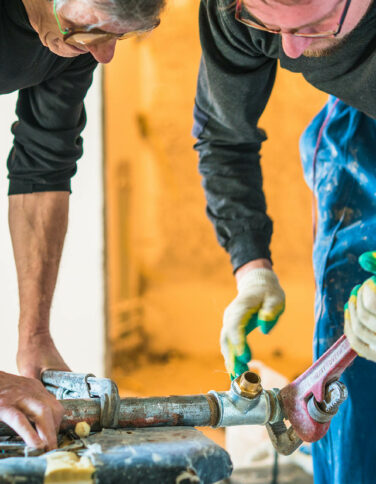

Plumbing and Domestic Heating Technician Advanced Apprenticeship Standard
Course overview
The Plumbing and Domestic Heating Technician Apprenticeship standard reflects the needs of employers in a diverse industry and apprentices employed in a wide variety of organisations working in domestic properties, commercial and retail buildings, public buildings, health care and leisure.
This apprenticeship is designed to provide the apprentice with the opportunity to develop both the knowledge and skills and core behaviours expected of a competent Plumbing and Domestic Heating Technician operating in a number of regulated areas.
The assessment process should add value to both the apprentice and the employer by setting and demonstrating the high skills, performance and knowledge standards required by employers in the plumbing and heating industry. Plumbing and Domestic Heating Technicians plan, select, install, service, commission and maintain all aspects of plumbing and heating systems.
Plumbing and domestic heating technicians can find themselves working inside or outside a property. Customer service skills and being tidy and respectful are important qualities as they can often find themselves working in customers’ homes as well as on building sites.
- As a competent Plumbing and Heating Technician, the installation of plumbing and heating systems includes accurate measuring, marking, cutting, bending and jointing metallic and non-metallic pipework.
- Appliances and equipment can include gas, oil and solid fuel boilers as well as pumps, heat emitters, bathroom furniture or controls as part of a cold water, hot water, and central heating or above ground drainage and rainwater systems.
- Plumbing and Domestic Heating Technicians are at the forefront of installing new and exciting environmental technologies like heat pumps, solar thermal systems, biomass boilers and water recycling systems.
- It is important for a plumbing and heating technician to be able to work independently or as a team and use their knowledge and skills to ensure that both the system and appliances are appropriately selected and correctly installed, often without any supervision, and done so in a safe, efficient and economical manner to minimise waste.
Core Knowledge Requirements include –
- Health & Safety – understanding legislation and practices
- Understanding of core plumbing systems
- Understanding installation and testing techniques of electrical components and control systems
- Understanding plumbing science and processes
- Understanding the principles of environmental technology systems
- Understanding the principles of fossil fuels
- Customer service and communication
Core Skills Requirements include –
- Safe working – adhering to current legislation
- Application of core plumbing system techniques
- Apply installation and testing techniques for electrical components and control systems
- Supervisory skills
In addition to the core skills and knowledge requirements, Plumbing and Domestic Heating Technicians must choose to undertake the following specialism
- Fossil Fuel – Natural Gas
Training is delivered on a one-day-per-week release basis at College where a tutor will monitor your progress alongside a progress coach who will assess your competency in the workplace.
You will be required to complete two onsite portfolios – one on Plumbing and one on Gas, that will assess your competency at work.
Typical completion time is likely to be 48 months. This may reduce if an apprentice has gained previous relevant knowledge and skills, which is recognised as Accredited Prior Learning.
The EPA can only be taken after the conditions of the Assessment Gateway have been successfully achieved
- Achieve Level 3 Plumbing and Domestic Heating Qualification
- Achieved Level 2 English & maths
- Employer and Training provider believe the apprentice is competent and meets the Standards, Knowledge, Skills & Behaviours.
The End-point Assessment (EPA) will assess how you apply your skills, knowledge and behaviours acquired in your apprenticeship, through the following assessments carried out in the final 3 months of the apprenticeship. Other methods of assessment include:
- Multiple choice test
- Practical installation test
- Practical application test
- Professional discussion
- Design projects
You need to be employed in a suitable position and hold a minimum level 4 (GCSE 5 – 9) maths and English.
As a plumber, you could find yourself working in many different places – from construction sites to residential homes. Job prospects are good, with plenty of scope for self-employment.
By the end of this apprenticeship, you will have satisfied the requirements for registration to the Gas Safe Register as a competent person.
A construction apprenticeship can lead to a rewarding career in a variety of roles in the construction industry. You may choose to progress with your employer, change jobs or study a higher-level apprenticeship.
For practical work, overalls and protective footwear are required.
Typical completion time is likely to be 48 months. This may reduce if you already have previous relevant knowledge and skills, which is recognised as Accredited Prior Learning.
As a construction apprentice with Activate Apprenticeships, you will have access to the following facilities at Activate Learning colleges:
Libraries and learning environments
- Ability to borrow books and laptops
- Digital resources and programmes
- A student card – allowing you to take advantage of student discounts
- Can apply for an Apprentice extra Totum Card
Advice and support services for apprentices includes:
- Advice and Admissions
- Learning Support
- Student Support
- Impartial careers advisors
- One-to-one support
- A college nurse
- Free counselling service
Alternatively enrol by phone quoting OS03WP1A002P or ask a question

Meet the tutors
We want our learners to feel welcome, safe and at ease when attending our classes, especially if this is your first time attending an adult education class or if you're coming back to education after a break.
If you're interested in one of courses, meet our tutors first! You'll see they have similar passions and interests and, most importantly, the right qualifications to help you make the most of your time and money.




